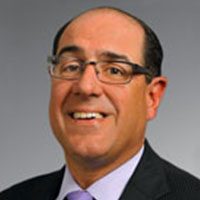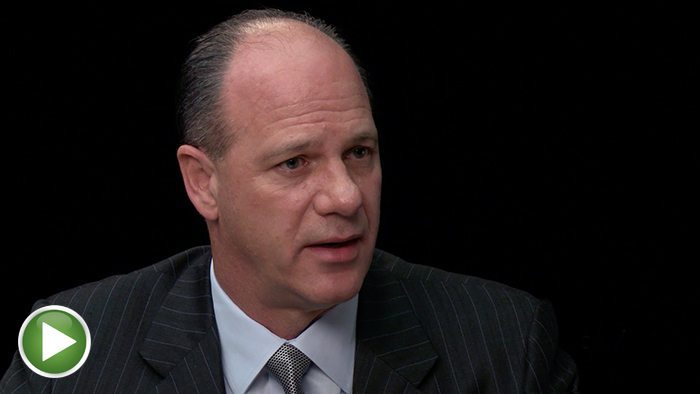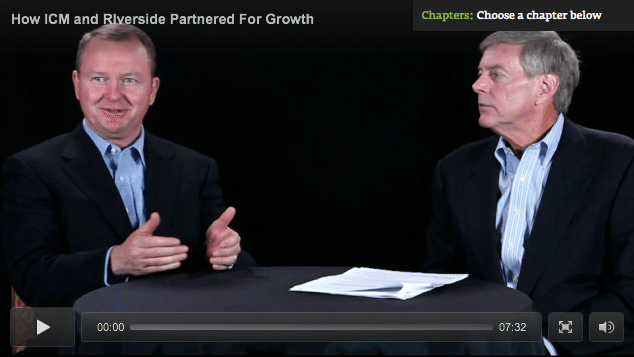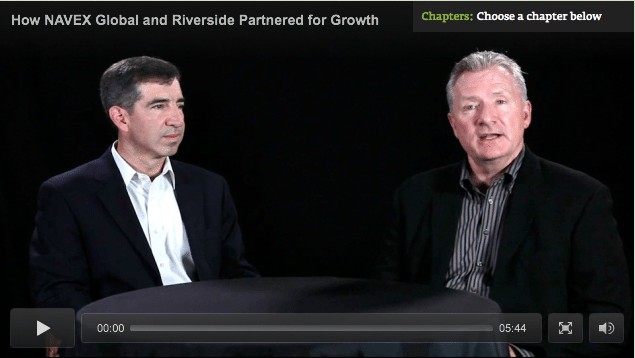Why Riverside Loves the Global Lower-Middle Market
The Co-CEO of global private equity firm The Riverside Company discusses the appeal of the lower-middle market, how his firm’s investment approach can produce outsized wins, and what commonalities lower mid-market companies around the world share. Kohl also explains why the details of deals-gone-awry hang in his firm’s restrooms. . .
Transcript Download Transcript
Why Riverside Loves the Global Lower-Middle Market
With Stewart Kohl of The Riverside Company
Don Lipari, RSM US LLP:
Hello. This is Don Lipari, National Head of Private Equity of RSM. I’m very excited to be introducing Powerhouses in Private Equity, a quarterly video series where we’ll be speaking to fund founders and managers about their experiences in the private equity industry. I hope you enjoy the video. Today, we’re joined by Stewart Kohl, co-CEO of The Riverside Company. Welcome, Stewart.
Stewart Kohl, The Riverside Company:
Thank you, Don.
Lipari: In 1995, you closed your first fund—$34 million—with a thesis of lower middle market. And that is the investment strategy to this day—lower middle market. What about the lower middle market does Riverside find so appealing?
Kohl: What’s wonderful about where we play—these businesses that have less than $35 or $40 million of EBITDA and, in most cases, much less; in some cases, virtually zero—is that, number one, there are so many ways to make them more valuable. We’re not buying flawed companies. We’re not doing true turnarounds. In fact, we’re buying what I would describe as beautiful little businesses, but there are so many ways we can add value to these companies.
Just the act of making them bigger typically will add some value because multiples typically tend to correlate, in part, with size. So, if we can start with a company that is smaller (at the smaller end of the middle market) but is profitable, growing, has a compelling value proposition for its customers and has perhaps some claim to leadership in its niche, then we can grow that business organically as well as through add-on acquisitions. We can double or triple the size of the business.
We can professionalize the business by improving the management team and management information systems, writing the first written strategic plan, creating the first real board of directors with outside experts, using our toolkit to improve things, like pricing at the business—all these ways to create value. That’s one of the reasons we feel the opportunities for an outsized outcome are better when you start where we do.
Secondly, it’s more fun. When you work with businesses of the size and type and ilk that we do, it’s rarely just about the numbers. It’s about the people and much more.
Lipari: The Riverside Company has operations and representation in four continents and has always had a global component to it. You opened your Munich office in 2000 and that was a critical component to your European strategy. Talk a bit about what it’s like investing in lower middle-market companies that are outside the borders of the U.S. or North America, which is easy to control. What’s it like with all the different cultures and different perceptions of private equity across the world? Give us a little commentary on that.
Kohl: First, I wanted to say the reason we are as global as we are—I have to give credit to my co-CEO and partner, Béla Szigethy. He is first generation, first in his family born in the U.S. His parents were off the boat from Hungary. So, when he founded The Riverside Company in 1988, sitting alone at his dining room table, overlooking the Hudson River on Riverside Drive in Manhattan, he found them simultaneously to be in two businesses: the first was small and very small in the middle-market buyouts in the U.S. The second was—the wall was coming down and helping Hungarian companies privatize. So, from its very founding and roots, Riverside was global. In fact, we were much bigger in Budapest for our first early years than we were in New York or in North America.
Although English is spoken in all of our offices, while the cultures are obviously different, what you have for lunch may differ and even how people dress at times may differ a bit, there is far more the same in what we do in these markets than is different.
If you were to visit a Riversider, which I would welcome in our Munich office, you find a German. If you visit us in our Tokyo office, you’d find Japanese and if you were to visit us in the Dallas office, you’d find Texans there. They’re really unique.
So, we’re always local and we’re always in touch with local norms, cultures and language. But, if you were then to engage them in a conversation of what kinds of companies we want to invest in, how we are going to grow these businesses, what challenges these business face and maybe, most significantly, what the needs and objectives are of the owners of those businesses—those founders, entrepreneurs and people we talked about—you would find that the conversation would be almost identical. The needs are much more similar.
But, at the smaller end of the middle market, it’s hard to think of even one other private equity firm that can credibly say to these businesses, “We can help you expand beyond your borders. We can help you grow outside your country, outside your continent globally.”
For example, when Jeff and Janine Allis wanted to bring in a controlling investor to Boost Juice, the leading chain of juice shops in Australia (much like Jamba Juice), they had their choice of firms. It’s one of the marquee companies in Australia. They chose Riverside significantly because we were the one firm that could say, “You’re already dominant in Australia. We can help you expand throughout Southeast Asia and around the world.”
Lipari: Stewart, you’re a big believer of sharing your wisdom and your life lessons. I don’t know if you trademark “Lessons from the Loo,” but talk about that extreme desire for you to learn from your own experiences.
Kohl: First of all, for “Lessons from the Loo,” I have to give credit to Béla again. He showed poor judgment a few times, calling me brilliant or masterful or offering me to become his partner in Riverside 23 years ago. But he showed some great judgment, too, like the idea that we should work very hard not to repeat the same mistakes. We’re going to make mistakes. We’re going to have bad deals. We’re in the risk capital business and it’s almost inevitable.
In fact, you could argue, if we weren’t having any losses, maybe we weren’t taking enough risk, but that we should work very hard to avoid making the same mistake twice. So, whenever we exit a business, whenever we have a realization, we go through a pretty tough introspective process. If it’s a winner, we’re going to learn some things that we did right that we want to do more of, but, even on the winners, we’re also going to learn a few things we might have done better to have had a bigger winner.
Especially because it’s so painful, just like everything else in life, when you really go through that tough introspective process on the losers, you learn. It’s expensive tuition, but you learn. So, we have a pretty rigorous process for doing it. We capture and we write it down.
Why in the bathroom? Well, the older we all get, the more times a day we learn those lessons. But it’s a way of signaling to folks that we can learn from these mistakes. We can survive these mistakes. We can grow and get better as a firm, but you don’t want your deals to end up in the bathroom.
Lipari: Let’s talk about what your vision is, what you anticipate private equity will look like in 2020.
Kohl: Private equity will still be a significant and growing force. I believe it has been growing for the almost 30 years I’ve been in it and for the 40 or 50 years that it’s existed in its modern form. I think it will continue to grow and the reason I think [that] is because it has produced superior returns. Those superior returns induce the pension funds, insurance companies, fund of funds, endowments and others—and now, increasingly, high net-worth individuals—to invest in the asset class.
The outperformance means that more and more companies will either want to be or need to be owned by private equity. So, I think, by both of those measures, it’s Darwinian and it will grow.
I believe that purchase-price multiples are at or near peak levels. They have been for quite some time, except during the dislocation of the global financial crisis. We’ll be in a period of increasing interest rates and we’ll see a decrease in purchase price multiples.
All of us who are buying companies today at these very lofty valuations need to recognize the fact that it is possible, perhaps likely, that we’ll be selling them at periods of time when multiples will be lower.
Statistically speaking, any company we buy today likely will hold through a recession. So, every time we buy a company, we ask ourselves, “Is this a company we’re going to be, if not delighted, at least happy to own in a difficult time?”









